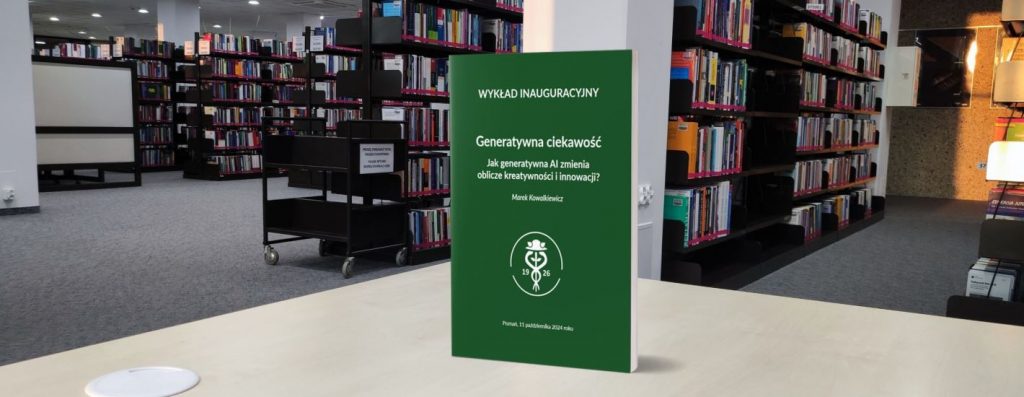
The full version of the inaugural lecture by Prof. Marek Kowalkiewicz entitled “Generative Curiosity. How does generative AI change the face of creativity and innovation?” has been published in open access on the website of the Poznań University of Economics and Business Press. The lecture focuses on the importance of generative artificial intelligence (AI) for human creativity and innovation.
The author presents the development of artificial intelligence against the background of different types of curiosity, emphasizing that generative AI goes beyond traditional data analysis functions, entering the areas of human creativity. He also presents the historical background of AI development, exploring the evolution of artificial intelligence and its impact on business, education, and innovation.
The lecture was delivered at the opening ceremony of the academic year at the Poznań University of Economics and Business on October 11, 2024. After the inspiring inaugural lecture, an Intellectual Afterparty with Prof. Marek Kowalkiewicz took place. Below is a recording of the Inauguration Ceremony of the 2024/2025 Academic Year at PUEB (lecture from 1:46:55):
Prof. Marek Kowalkiewicz currently serves as the Head of the Department of Digital Economy at the Business School of Queensland University of Technology (Australia) and is the founder and director of the QUT Centre for the Digital Economy. He is a figure who combines science with economic practice at the highest level. His rich career includes, among others, working in research and managerial positions at SAP Research in Australia, Singapore, and the USA. Prof. Kowalkiewicz led research teams, created innovative solutions such as the first SAP application in the AppStore (AUS Traffic), and promoted SAP technologies in the Asia-Pacific region.
It is worth recalling that Prof. Marek Kowalkiewicz completed his master’s degree in 2002 and defended his doctoral thesis with distinction in 2006 at our University, where he also worked at the Department of Information Systems.